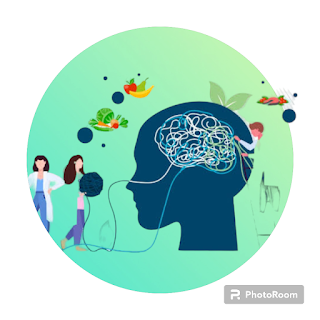Top 7 Effective Ways to Improve Your Mental Health
Introduction:
Maintaining good mental health is essential for overall well-being and quality of life. Just as we prioritize physical health through exercise and nutrition, it's crucial to dedicate time and effort to nurture our mental health. Here are seven proven strategies to help you improve your mental well-being.
1. Prioritize Self-Care:
Self-care involves intentionally taking time to nurture your mental, emotional, and physical health. This can include activities like practicing mindfulness, taking breaks when needed, getting enough sleep, eating a balanced diet, and engaging in hobbies or activities that bring you joy and relaxation.
2. Stay Active:
Regular physical activity has been shown to have numerous benefits for mental health. Exercise releases endorphins, which are chemicals in the brain that act as natural mood lifters. Aim for at least 30 minutes of moderate exercise most days of the week. This could be as simple as going for a walk, cycling, dancing, or practicing yoga.
3. Cultivate Healthy Relationships:
Strong social connections are vital for mental health. Spend time with friends, family, or loved ones who uplift and support you. Surround yourself with positive influences and communicate openly about your feelings. Building a supportive network can provide a sense of belonging and reduce feelings of loneliness or isolation.
4. Practice Mindfulness and Relaxation Techniques:
Mindfulness involves being present in the moment and non-judgmentally observing your thoughts and feelings. Regular mindfulness practice, through activities like meditation or deep breathing exercises, can help reduce stress, anxiety, and rumination. Incorporating relaxation techniques into your daily routine can promote a sense of calm and balance.
5. Seek Professional Support:
Don't hesitate to reach out for professional help if you're struggling with your mental health. Therapy, counseling, or support groups can offer valuable resources and guidance. A mental health professional can provide personalized strategies to address your specific concerns and empower you to navigate life's challenges more effectively.
6. Set Realistic Goals:
Setting achievable goals can boost your sense of accomplishment and self-esteem. Break larger goals into smaller, manageable tasks, and celebrate your progress along the way. Whether it's pursuing a new hobby, advancing in your career, or improving a skill, setting realistic goals can provide direction and motivation.
7. Practice Gratitude:
Cultivating an attitude of gratitude can significantly impact your mental well-being. Take time each day to reflect on the things you're thankful for, whether it's a supportive friend, a beautiful sunset, or a delicious meal. Keeping a gratitude journal or simply expressing appreciation verbally can shift your focus towards positivity and enhance your overall mood.
Conclusion:
Improving your mental health requires proactive effort and commitment, but the rewards are well worth it. By incorporating these strategies into your daily life, you can cultivate resilience, reduce stress, and enhance your overall quality of life. Remember that prioritizing your mental well-being is an ongoing journey, and it's okay to seek support when needed. Embrace these practices with compassion and patience, and you'll be on your way to a healthier, happier mind.





The Great Content About Mental Health
ReplyDeleteGood 👉
ReplyDelete